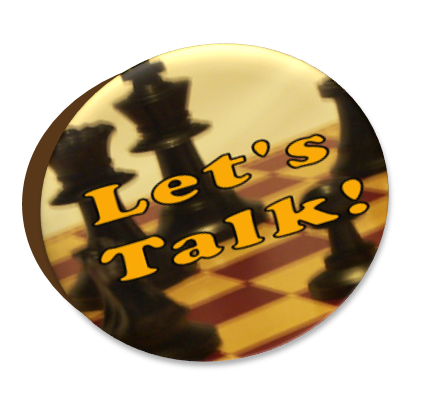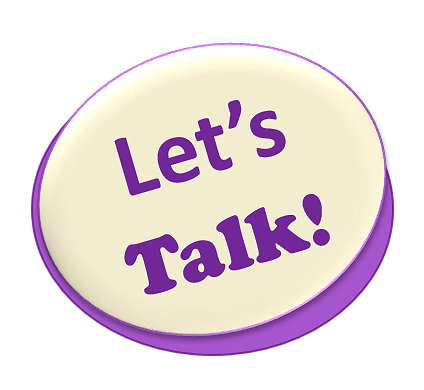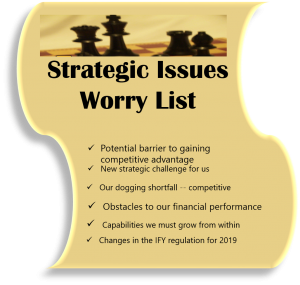
“Remote strategic planning? Hmmm… I’ve got to say I am doubtful about that one. Strategic planning is too expensive, time consuming and important for me to risk on getting it done virtually”.
If that’s how you feel about remote strategic planning we couldn’t fault you for sharing that sentiment. Strategic planning is serious business and you would be foolhardy to take such an important risk with little information on how remote have worked for planning, or the advantages and drawbacks to it.
Moreover, when you are embarking on the strategic planning journey, both you and your team need a warm interaction with an expert who will do more than facilitate planning. You are likely looking for an expert in strategy as well as a facilitator who serves as an objective advisor. One who ask heads-back and chests-forward incisive questions for helping your team to rethink strategy, goals, objectives and actions. And by doing so ensures what your plan is doable, positions your organization for growth and account for risk. You also want someone to lead your team into reflecting on its history and results to date.
Today, 99% of strategy solution sponsors expect their investment to include an external sounding board, researcher, coach and mentor for helping their team to grow planning skills, experience and knowledge. With such a long wish list hinged on relationships, expertise, experience and time management it is easy to see why to someone unfamiliar with remote strategy planning would perceive it to be too cold and distant to deliver their expectations.
But as William Yeats (The Irish Poet, W.B. Yeats) says— “The world is full of magic things, patiently waiting for our senses to grow sharper.” Remote strategy planning is one such magic thing waiting to help you grow a stronger organization.
Though odd, this open secret—fear of the unknown and failure is still a hidden factor that have dogged and crippled the leadership of many organizations when it comes to pursuing growth-focused innovation and strategy execution. Making strategy planning happen when teams are scattered or budget is tight is not excluded from that scenario.
I’d say it’s a sad state of affairs that can be easily fixed. Do not allow fear to limit the impact of your leadership or options for developing and executing your strategy. Explore the exciting opportunities presented by low cost technology for remote planning and other strategic management activities.
Technology have come a long way in providing the virtual platforms that allows individuals and organizations to deliver face-to-face, warm remote interactions. Not to mention, the variety of software and applications that allows for democratic and group processes, stakeholder consultations, interviewing, surveys, data capture from social media and mobile engagement.
All of which provides for deeper learning, expanding knowledge and improving the quality of data on which to make predictions for developing your strategy, plan and related logic.
By now I believe you can see at least a glimmer of how strategic planning could work in a remote environment?
Our ability to gather information on context, clients, customers, suppliers, industry—you name it in addition to internal information for guiding decisions relating to the what and how for advancing your mission and delivering your vision have been enhanced exponentially by remote research capabilities.
On top of that opportunities for your team members to revisit planning sessions individually in their own time for increasing understanding and reflection are tremendous.
Cost is another big factor that have led some organizations to take the “do it yourself”, less objective and less effective though better-than-nothing approach. Others have sadly chosen to skip planning on a flawed assumption that they cannot afford it. International development agencies and large charities have come to see the benefits and cost savings that are available through both remote strategy planning and organizational performance evaluation.
They have come to see the benefits of leveraging technology to connect remote communities and entities with limited resources to top-notch talent. Talent has come to realize the cost savings and value-added they can deliver through extended capacity to reach customers and stakeholders in faraway places in addition to those nearby. Big business and organizations in large cities are increasingly turning to the use of remote planning solutions in order to save while including participation by team members in other towns, countries or cities.
You’ll find that UN organizations (United Nations) are among the large NGOs and intergovernmental organizations that are seizing such opportunities. So, what’s holding you back?
If you lack experience that’s not a problem, you must start somewhere. If you fear it might not be right for you then, you have two options research to find out more then decide, try and see or both.
We understand that remote planning might not be right for every team, so we are willing to help you decide if it is right for yours.
We bring almost two decades of strategy and remote service delivery experience to helping you to decide.
What Goes into The Remote Planning Exercise
When planning with us the steps we’ll take will vary depending on the following: the experience of your team with strategic planning, remote planning, the stage of development of your organization, motivation to and purpose for planning as well as where you are on the strategy process continuum.
As it relates to the strategy process continuum it could be that you are in need of your first corporate strategy plan; or you are at a milestone and need a new strategic operational plan? It is also likely that you have come to the end of the implementation period for a program or a 3-5yr corporate strategy plan and is now in need of a strategy solution for developing the new plan.
In that case you may need an organizational self-assessment for assessing how you did in the past, strategy development, evaluation and planning for creating the new corporate strategy plan that will guide your next strategy execution period. Most organizations, experienced in planning would also invest in the combo of corporate strategy plan, operational plan and performance management tools (For guiding monitoring and evaluation during strategy execution).
Your Solution Unwrapped
Note: The following is not a step-wise process as the steps will depend on where you are on the strategy process continuum.
Depending on what’s right for you we put technology to work with human care and intelligence to take you through processes such as:
- Eyeball-to-eyeball virtual meetings, conversations and document reviews for understanding your context, wants and needs;
- Strategic identity creation, clarification or update (For ensuring mission, vision, values etc. are clear, relevant, inspiring and impactful);
- Identification of your core resources, competence, aspirations, challenges and capabilities;
- Strategic analysis, drawing on qualitative and quantitative research methods and tools for better understanding your external environment. At the end of which we will better understand how it will or could impact your organization in addition, to how your organization might influence the environment.
We do that by conducting an external environmental scan (PESTLE, STEEP, STEEPLE, SKEPTIC etc.). Having identified trends related to regulation, inflation, ecology, customers, competitors, stakeholders, suppliers among other things we revisit your strategic intent and organizational capacity (Your SWOT plus analysis) to determine the new competencies that will be required in order to get the job done. Technology comes in handy for helping us to engage in rich conversations with your customers, clients and partners live, or to through anonymous sharing— irrespective of distance.
- Getting to an organizational development plan for you, here again we draw on the technology to present you with a user-friendly document plus face-to-face conversation that enables your leadership and management team to respond to our findings, recommendations and proposed strategy options for delivering your desired competitive edge. This forms part of your planned strategy formulation process.
- During planning, remote technology enables us to create interactive tools for illustrating and sharing your strategy framework and strategy— articulated into your position, and objectives. From Board to staff will be able to tell what kind of strategy framework you have chosen (Ansoff Matrix, Stakeholder Model, Values Discipline, McKinsey’s Strategic Horizons, Balanced Scorecard or your own blend). Strategy and logic maps can be adjusted in real-time as your team think and re-think your objectives. Best of all they can be made available in a virtual room 24/7s for comments and ideas as they flow to and from your team.
- Planning remote allows you even more time for bringing leadership and execution teams to a meeting-of-minds as they review scenarios, assess risks and assumptions and decide on trade-offs during the strategy evaluation and strategy elaboration You won’t miss out on live group brainstorm sessions, team building games or pictures of your team working together.
You’ll have plenty of opportunity to share what is working for your team during the planning process and to work out adjustments if necessary.
You may have noticed that we have covered several steps and activities before touching on strategy elaboration—the step or sub-process where the strategy gets translated into plans and workplans (Your plans will include strategic objectives, goals, indicators, quality measures, outcomes and outputs aligned with strategic intent, effort, timelines and resources).
Once the plan has been completed we will help you with the initial stage of communicating your plan. However, if we are engaged to assist with performance management and measurement we support you with full plan communication, additional help with identifying your emergent strategies, analyzing your performance results and triggering strategy update.
Challenges of Remote Planning
In exchange for deeper learning and broader participation your team will need to prep ahead for remote planning. This means using online time converters and e-calendars (outlook, yahoo and or google calendar) for scheduling.
In some instances, you and/or your team may be required to learn new skills for working in virtual planning rooms, accessing web conferences, participating in e-groups or completing online surveys. Most teams we have met have enjoyed learning those skills. Older Board members might be averse to using some e-tool, depending on their experience with technology. Nonetheless we have been able to include technology challenged individuals in remote planning sessions.
The planning process may be stretched over a longer period of time. Some groups can manage a typical 4-hour virtual planning workshop (Plus lunch and refreshment breaks) while some can only manage two hours.
You may need to check on computers, microphones and plan seating arrangement for you team ahead of the session depending on the set up we agree. It is possible to have a session without you having to consider seating or computers. But we will guide you in setting up your room as the facilitator would have if required.
Love your flipcharts? We will tell you how to make that happen during remote planning.
Expect a session or two where technology might fail and a reschedule maybe required.
Discipline for completing related assignments is required.
You may need to plan and secure refreshment and meals for your team.
Could It Be Worth Your Investment?
We believe that the challenges above are small compared to the benefits of having a plan that includes:
- a clearly articulated strategic intent,
- is easy to use for guiding the delivery of the results you planned,
- makes performance management easy,
- is doable, affordable and communicates the what and how of your strategy effectively both internally and externally.
When a solution is designed to fit your needs and budget and still allows you to access the expertise and help of a strategy expert, facilitator, strategy analyst, strategy finder, sounding board and performance improvement catalyst, we believe it’s worth the while.
Still on the fence?
Schedule a remote face-to-face connect and clarify session today!
C lick the “let’s talk button” to submit your needs, name of organization, location and three possible meeting times.
lick the “let’s talk button” to submit your needs, name of organization, location and three possible meeting times.
Meegan Scott is a strategic management consultant with almost two decades of experience in strategy and remote (virtual) service delivery.
Copyright © 2018 Meegan Scott
All Rights Reserved


















